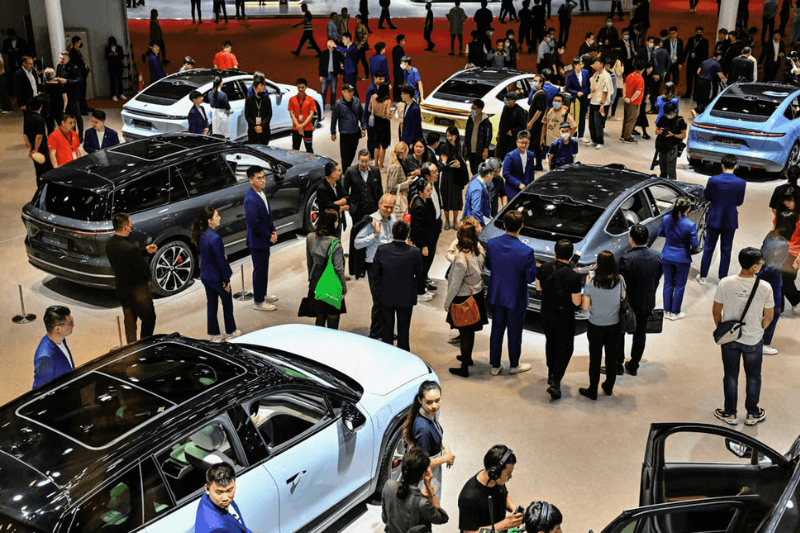
Why Are France And Germany Responding Differently To EU Probe Into Chinese EVs?
It seems a new geopolitical battle is developing over electric vehicles as the European Commission has launched an investigation into China’s “anti-competitive behaviour”.
“Europe is open for competition, not for a race to the bottom,” EC President Ursula von der Leyen announced during her annual State of the Union speech in France last week.
The EU has decided to probe Chinese subsidies of electric vehicles, in a move that could even trigger trade restrictions, such as import tariffs on Chinese vehicles.
Currently, Chinese automakers are enjoying a dominant position in the international electric vehicle industry, while their European competitors are racing to expand their lineups.
Concerns have been raised in Europe over an unfair competition from Chinese models that can be sold at a lower price, thanks to massive subsidies from the government in Beijing.
What Has Been China’s Response To EU’s Anti-subsidy Probe Launch?
According to NPR’s Rob Schmitz, Beijing has been pretty quick to respond, with its Commerce Ministry warning the move would have a negative impact on China-EU trade relations.
It called the investigation a “naked protectionist act” that will distort the global auto industry supply chain. Nevertheless, Chinese subsidies of electric vehicles aren’t a surprise.
Then why is the EU raising a complaint now? It could be because von der Leyen’s term as president is up next year, Schmitz added.
Chinese electric cars are now starting to appear in countries that have built the best infrastructure for EVs in Europe, including Norway, Belgium and the Netherlands.
Keep Reading
Why Has There Been Different Responses To The Threat?
French automakers haven’t been responding gently to the threat from China. They have been pressuring the EC President to launch the anti-subsidy investigation.
However, Germany’s response is nowhere the same as France’s. The former certainly has a vigorous auto industry but it hasn’t been potentially complaining.
The reason could be related to German automakers presence in the Chinese market. Companies like VW, BMW and Mercedes have been doing good business in the Asian market.
French carmakers, however, have a relatively low presence in China. It appears the German market is worried about a potential retaliation from Beijing.
And China has one of the largest markets across the globe, potentially 12 times bigger than the German market, said Burkhard Riering, editor-in-chief of Germany’s Automobile Weekly.



